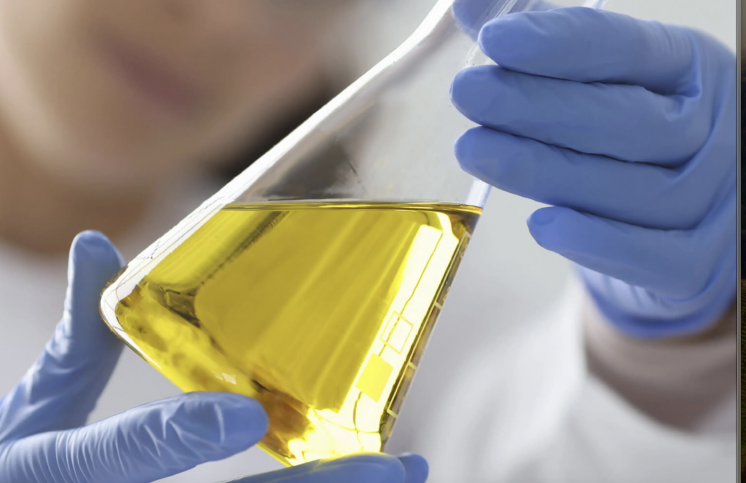Table of Contents
- Introduction to Oleochemicals
- What Are Oleochemicals?
- Key Production Processes of Oleochemicals
- Hydrolysis
- Saponification
- Esterification
- Applications of Oleochemicals Across Industries
- Cosmetics
- Detergents
- Pharmaceuticals
- Environmental and Economic Benefits of Oleochemicals
- Sustainability and Renewable Sourcing
- Economic Growth and Industrial Impact
- The Future of Oleochemicals in Green Chemistry
- The Role of Technoilogy in Oleochemical Advancements
- Expertise in Sustainable Oleochemical Processing
- Commitment to Renewable Chemistry
- Conclusion
Introduction to Oleochemicals
The shift toward sustainable chemistry has driven industries to explore natural and renewable alternatives to petrochemicals. Among the most promising solutions, oleochemicals have emerged as a cornerstone of modern green chemistry.
Derived from vegetable oils and animal fats, oleochemicals offer a biodegradable, eco-friendly alternative to conventional chemical compounds. Their use spans cosmetics, detergents, pharmaceuticals, and lubricants, making them a key component in the global push toward environmentally responsible manufacturing.
What Are Oleochemicals?
Oleochemicals are chemical compounds extracted from natural fats and oils. Unlike petrochemicals, which are derived from fossil fuels, oleochemicals originate from renewable feedstocks such as palm oil, soybean oil, coconut oil, and tallow.
Through advanced processing techniques, these fats and oils are transformed into functional ingredients used in various industrial applications. The primary advantages of oleochemicals include:
- Biodegradability – They break down naturally, reducing environmental pollution.
- Renewable sourcing – Produced from sustainable and regenerative materials.
- Versatility – Used in personal care, cleaning products, pharmaceuticals, and more.
These attributes position oleochemicals as an essential part of green chemistry, supporting industries in their transition toward sustainable raw materials.
Key Production Processes of Oleochemicals
The transformation of natural oils and fats into oleochemicals involves three primary processes:
1. Hydrolysis
This process involves breaking down fats and oils into fatty acids and glycerol using water and a catalyst. The resulting fatty acids serve as key raw materials for soaps, detergents, and emulsifiers.
2. Saponification
Saponification is the reaction between fats and an alkali to produce soap and glycerol. This method is widely used in the cosmetics and personal care industries, where natural surfactants play a crucial role in skin-friendly formulations.
3. Esterification
Esterification is the reaction between fatty acids and alcohols to produce esters, which are essential in lubricants, food additives, and fragrances. This process enhances performance characteristics in various applications, making products more efficient and effective.
Applications of Oleochemicals Across Industries
Cosmetics
Oleochemicals enhance the moisturizing and conditioning properties of skincare and haircare products. They are widely used in:
- Lotions and creams for hydration
- Hair conditioners for smoothness
- Makeup formulations for texture and consistency
Detergents
Oleochemicals provide a biodegradable alternative to petroleum-based surfactants in cleaning products. They enhance:
- Foaming and cleansing efficiency
- Environmental sustainability of household and industrial detergents
- Mildness and skin compatibility in personal care cleansers
Pharmaceuticals
In the pharmaceutical sector, oleochemicals are used as:
- Excipients in drug formulations
- Solvents and carriers for active ingredients
- Base materials for medical ointments and capsules
Their biodegradability and biocompatibility make them essential in developing safe and effective medical products.
Environmental and Economic Benefits of Oleochemicals
Sustainability and Renewable Sourcing
Oleochemicals support the global shift toward sustainable raw materials, reducing dependence on fossil fuels. Their production process results in:
- Lower carbon emissions compared to petrochemical alternatives
- Reduced waste generation through the use of renewable feedstocks
- Biodegradability, ensuring minimal environmental impact
Economic Growth and Industrial Impact
The oleochemical industry contributes to economic growth by:
- Creating jobs in the renewable chemical sector
- Driving innovation in sustainable material science
- Enhancing resource efficiency for manufacturers
As industries prioritize green solutions, the demand for oleochemical-based products continues to grow.
The Future of Oleochemicals in Green Chemistry
With increasing global regulations on sustainability, oleochemicals are expected to play a critical role in the transition to bio-based industries. Research and development efforts are focused on:
- Expanding feedstock sources to improve sustainability
- Enhancing production efficiency to lower costs
- Developing new applications in advanced materials and bioplastics
As industries move away from petrochemicals, oleochemicals are becoming the preferred alternative in various manufacturing and consumer product segments.
The Role of Technoilogy in Oleochemical Advancements
Expertise in Sustainable Oleochemical Processing
Technoilogy is a leader in biofuel and oleochemical technologies, offering advanced solutions for renewable chemical processing.
Commitment to Renewable Chemistry
Technoilogy focuses on:
- Developing high-efficiency oleochemical production systems
- Optimizing industrial processes to reduce environmental impact
- Providing scalable solutions for businesses seeking sustainable alternatives
Technoilogy’s innovations help manufacturers transition toward greener chemistry, ensuring a low-carbon future for the chemical industry.
Oleochemicals represent a key breakthrough in modern chemistry, offering sustainable, biodegradable, and renewable solutions for multiple industries. Their role in cosmetics, pharmaceuticals, and detergents highlights their importance in the shift toward environmentally responsible manufacturing.
With growing demand for sustainable materials, oleochemicals are set to drive the future of green chemistry, helping industries reduce their carbon footprint while maintaining high performance and efficiency.
As companies like Technoilogy continue to develop cutting-edge solutions, oleochemicals will remain at the forefront of sustainable innovation, shaping a more responsible and resilient chemical industry.

